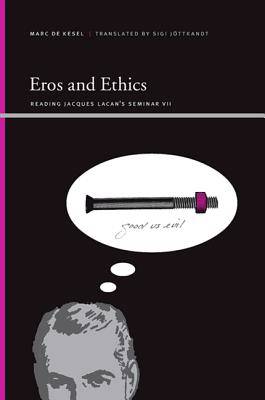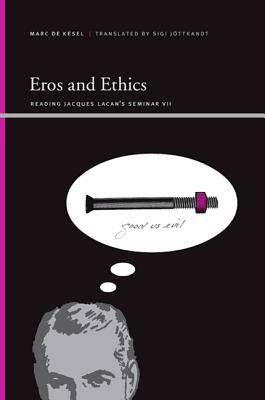
- Afhalen na 1 uur in een winkel met voorraad
- In januari gratis thuislevering in België
- Ruim aanbod met 7 miljoen producten
- Afhalen na 1 uur in een winkel met voorraad
- In januari gratis thuislevering in België
- Ruim aanbod met 7 miljoen producten
Omschrijving
A comprehensive examination of Lacan's seminar on ethics.
In Eros and Ethics, Marc De Kesel patiently exposes the lines of thought underlying Jacques Lacan's often complex and cryptic reasoning regarding ethics and morality in his seventh seminar, The Ethics of Psychoanalysis (1959-1960). In this seminar, Lacan arrives at a rather perplexing conclusion: that which, over the ages, has been supposed to be "the supreme good" is in fact nothing but "radical evil"; therefore, the ultimate goal of human desire is not happiness and self-realization, but destruction and death. And yet, Lacan hastens to add, the morality based on this conclusion is far from being melancholic or tragic. Rather, it results in an encouraging ethics that for the first time in history gives full moral weight to the erotic. De Kesel's close reading uncovers the real scope of Lacan's criticism regarding the moralizing ethics of our time, and is one of the rare books that gives the reader full access to the letter of the Lacanian text.
Specificaties
Betrokkenen
- Auteur(s):
- Vertaler(s):
- Uitgeverij:
Inhoud
- Aantal bladzijden:
- 352
- Taal:
- Engels
- Reeks:
Eigenschappen
- Productcode (EAN):
- 9781438426099
- Verschijningsdatum:
- 28/05/2009
- Uitvoering:
- Hardcover
- Formaat:
- Genaaid
- Afmetingen:
- 150 mm x 231 mm
- Gewicht:
- 612 g

Alleen bij Standaard Boekhandel
Beoordelingen
We publiceren alleen reviews die voldoen aan de voorwaarden voor reviews. Bekijk onze voorwaarden voor reviews.









